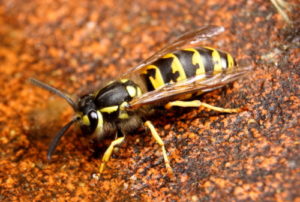Introduction
In minutes of situation, recognizing exactly how to carry out CPR can mean the distinction between life and death. Whether you go to home, at the office, or out in the area, knowing just how to provide aid can encourage you and those around you. This post is dedicated to helping you find regional CPR classes that will certainly outfit you with the abilities required to conserve lives. From understanding the fundamentals of mouth-to-mouth resuscitation to innovative resuscitation methods, we'll explore everything you need to know.

Find Neighborhood mouth-to-mouth resuscitation Classes: Change Yourself into a Lifesaver
Finding local CPR classes is much easier than ever before. With different organizations providing training sessions, both in-person and on the internet, there's no reason not to be prepared. You could be asking yourself: Where do I start?
Why Discover CPR?
Learning CPR isn't practically obtaining an ability; it's about preparing when it counts. In cardiac emergency situations, every second matters.
- Quick Response: The quicker a person obtains CPR, the better their opportunity of survival. Empowerment: Understanding you can make a difference infuses confidence. Community Impact: You contribute to creating much safer environments.
The Duty of AEDs in CPR
Automated External Defibrillators (AEDs) play a vital role in resuscitation efforts.

Understanding Incorrect Compression Depth
One typical mistake throughout mouth-to-mouth resuscitation is wrong compression depth.
- Adult vs. Youngster vs. Infant: The depth differs based on age: Adults: At least 2 inches Children: Concerning 2 inches Infants: Regarding 1.5 inches Importance of Depth: Not enough depth can bring about inadequate circulation.
CPR Strategies for Different Situations
How to Do CPR
Here's a step-by-step overview on doing basic grown-up CPR:
Great site Ensure the scene is safe. Check for responsiveness. Call for assistance or have somebody telephone call emergency situation services. Begin chest compressions at a price of 100-120 per minute. After every 30 compressions, provide 2 rescue breaths.Tips for Effective Breast Compressions
- Keep your arms straight. Use your body weight for force. Compress tough and fast.
Infant mouth-to-mouth resuscitation Technique
When it comes to babies, methods differ significantly:
Use 2 fingers for compressions. The depth must be about 1.5 inches. Deliver rescue breaths by sealing your mouth over their mouth and nose.Combination Training Options
CPR and First Aid Combo Courses
Combining mouth-to-mouth resuscitation training with emergency treatment programs improves your readiness for emergencies.
- Comprehensive Training: Understand various medical emergencies alongside resuscitation techniques. Certification Advantages: Several companies provide twin qualification upon completion.
Age-Specific Guidelines
Age-Specific CPR Standards Australia
Different age groups require tailored approaches:
|Age|Compression Depth|Proportion|
|-----------|------------------|-------|
|Grown-up|A minimum of 2 inches|30:2|
|Youngster|Regarding 2 inches|30:2|
|Baby|About 1.5 inches|30:2|
Special Circumstances in Resuscitation
CPR for Sinking Victims
Drowning targets have distinct needs:
Prioritize rescue breaths because of the nature of asphyxiation. Perform compressions if there's no heart beat after rescue breaths are administered.Sports-related Cardiac Arrest
Athletes might deal with sudden cardiac arrest throughout activities.
Immediate action is critical; initiate CPR without delay. Utilize offered AEDs quickly if accessible.Workplace Emergency situation Plans
Having work environment emergency situation strategies can save lives:
- Train employees on a regular basis on standard emergency treatment and mouth-to-mouth resuscitation skills. Conduct drills that imitate real-life scenarios involving cardiac arrest or injuries requiring immediate attention.
The Misconceptions Surrounding CPR
It's vital to expose myths bordering this lifesaving strategy:
Myth # 1: "CPR Always Restarts Heart"
While many think that breast compressions will always reboot the heart, this isn't true-- it's meant to maintain blood flow until professional assistance arrives.
FAQs
Q1: What is the validity period of a CPR certificate?
A1: Commonly, the majority of certifications need revival every 2 years; however, this might vary by organization and locale.
Q2: Can I take on the internet CPR certification?
A2: Yes! Many approved organizations use on-line qualification which includes video demos and quizzes.
Q3: Exist particular guidelines for medical care providers?
A3: Absolutely! Doctor certifications often consist of advanced strategies regular with existing health and wellness standards.
Q4: Exactly how do I locate regional classes?
A4: Undergo companies like the Red Cross or regional health departments for schedules near you!
Q5: What tools do I need for efficient training?
A5: Fundamental training commonly requires mannequins for method; some training courses may likewise give AED simulators.
Q6: Are there sources especially tailored for Australian audiences?
A6: Yes! Numerous Australian wellness bodies provide local standards and training choices customized to regional needs.
Conclusion
Transforming yourself right into a lifesaver starts with choosing local classes where you can discover important abilities like CPR and first aid techniques tailored especially for different situations-- whether attending to sports-related cardiac arrest or making use of AEDs successfully alongside traditional approaches like breast compressions and rescue breaths.
By participating in these courses, not just do you outfit yourself with knowledge that might potentially save lives yet likewise become a vital resource within your community-- an individual that stands ready in times of crisis! So why wait? Discover regional mouth-to-mouth resuscitation classes today and embrace the power of being prepared!
This extensive guide has covered numerous elements associated with finding local mouth-to-mouth resuscitation courses while ensuring you're outfitted with practical knowledge that enhances your capability as a lifesaver!